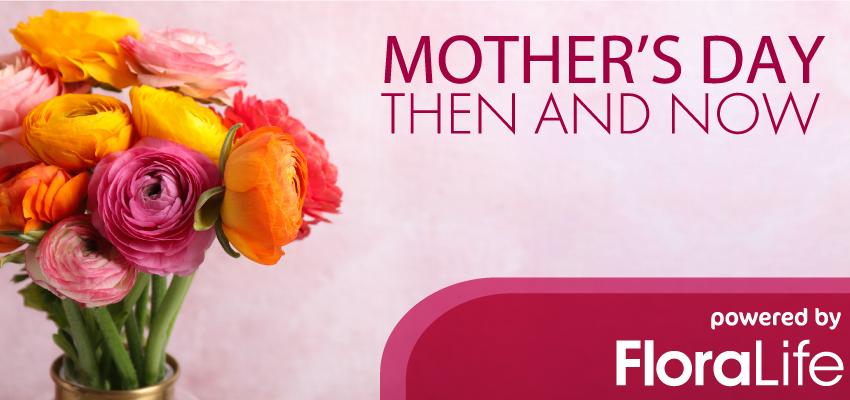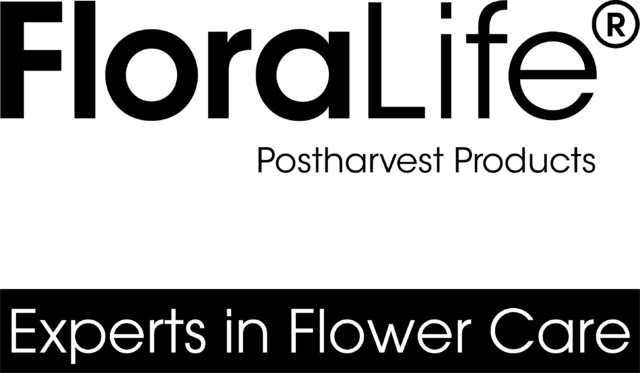Mother’s Day Then and Now
LivRio Magazine April 2021, powered by FloraLife

Before Mother’s Day became a major annual event in every florist’s calendar, it was a very different kind of celebration. Motherhood had long been celebrated going back as far as the ancient Greeks and Romans, but it was the early Christians who first began celebrating ‘Mothering Sunday’.
Celebrated on the fourth Sunday of Lent, ‘Mothering Sunday’ was the time when all Christians returned to their “Mother Church”, the church closest to their hometown, for a special service. Over time however, the initial reason for ‘Mothering Sunday’ has blurred into a celebration of Motherhood, but in many places, it is still celebrated on the fourth day of Lent.
Florists in the United States, however, can thank Anna Jarvis for campaigning for Mother’s Day to be recognized as an official holiday. The very first Mother’s Day was held on the 2nd Sunday in May 1908 in Grafton, West Virginia, as a way of honoring the sacrifices Mothers made for their children. As popularity for the holiday grew, many more cities, churches and States began celebrating Mother’s Day, until finally in 1914, President Woodrow Wilson officially designated the second Sunday in May as Mother’s Day.
So now that you know a bit more about the origin of Mother’s Day, let’s talk about flowers! There is no better way to show your Mom how much you care for her than by giving her a beautiful bouquet of flowers. So, how about choosing flowers that are as elegant and delicate as she is, such as the pretty Ranunculus?
With their profusion of tissue thin petals, Ranunculus make a fabulous addition to any Mother’s Day bouquet. Because they are available in so many colors, they are incredibly versatile and can be classy and elegant, bright and cheery, or pretty and pastel depending on the look you are seeking.
Ranunculus stems tend to be naturally bendy. They rarely grow straight, which adds to their natural aesthetic. But they can be quite delicate as they are hollow. You may find it easier to hold these flowers upside down when handling to prevent breakage. Their delicate nature means they can look small or wilted upon arrival, but with proper hydration and care, they will soon regain their shape and vibrance.
It’s no surprise that Ranunculus are so popular though, as they belong to the star-studded flower family, Ranunculaceae! Other members of this family include Delphinium & Larkspur which are popular cut flowers, and garden favorites such as Clematis, Nigella, Hellebore, Aquilegia, Thalictrum, Trollius & Aconites.
Ranunculus Care and Handling Tips
Hydration and Storage at Store Level
- Start processing with a clean bucket, sanitized with D.C.D.® cleaner.
- If received dry packed, conditioning of stem ends is recommended to prevent blockage and promote uptake. Cut approximately 1” or more off stems. Use clean, sanitized clippers or knife, and treat with FloraLife® Quick Dip.
- Place flowers in a holding treatment such as FloraLife® Express 200. Do not put flowers directly in metal/galvanized buckets. Use clean, high quality water that has not been treated with a water softener as the salt levels can be damaging to flowers.
- Store in a cooler at 34 – 38° F with a relative humidity of 75-85%
- Allow minimum 2 hours to hydrate placing buckets in an area with good airflow.
- Always remember FIFO (first in/first out) when rotating flowers.
Vase Care
- Ranunculus are best hydrated with their protective sleeve intact. Leave stems in their packaging until hydrated.
- Remove any leaves that might be below the vase solution.
- Cut approximately 1” or more off stems. Use clean, sanitized clippers or knife. If received dry, treat with ForaLife® Quick Dip. Remember to not remove the sleeve yet.
- Immediately place flowers in vase solution containing FloraLife® Crystal Clear 300 or FloraLife® Express 300.
- Leave stems to hydrate for approximately four hours. Once hydrated, remove sleeve and arrange as desired.
Special Consideration
- Avoid getting water on blooms! Ranunculus are prone to botrytis when blooms are over saturated.
- Ranunculus are ethylene sensitive; insist that your supplier treats with an ethylene inhibitor such as Ethylbloc™ to protect against exposure. Do not store or display near ripening produce or products that produce ethylene.
Happy Mother’s Day!
To learn about best practices from the experts in flower care or to inquire about products and availability in your region, visit www.floralife.com or contact your local FloraLife representative.
*Product availability depends upon geographical region
